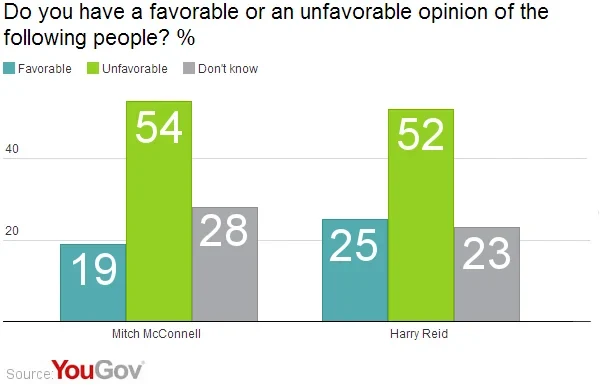Americans are split down the middle on whether filibuster rules in the Senate are good or bad, but only 6% of Americans approve of the job Congress is currently doing.
Last week, nearly all Senate Democrats chose the “nuclear option” and voted to end the rule that allowed filibusters on Presidential nominations, after Republicans used the threat of a filibuster to block multiple nominations. While legislation can still be filibustered, the only nominations that can now be filibustered are for Supreme Court justices.
The Americans public, in the latest Economist/YouGov Poll, isn’t sure change is the right move. But the issue continues to be one where partisanship is the major factor determining opinion, as it has been in previous polls.
36% of the public would approve of changing the number of votes required to break all filibusters to 51, so bills could pass by a simple majority; 37% disapprove. Americans are similarly split when asked whether the filibuster is a good or bad rule in general.
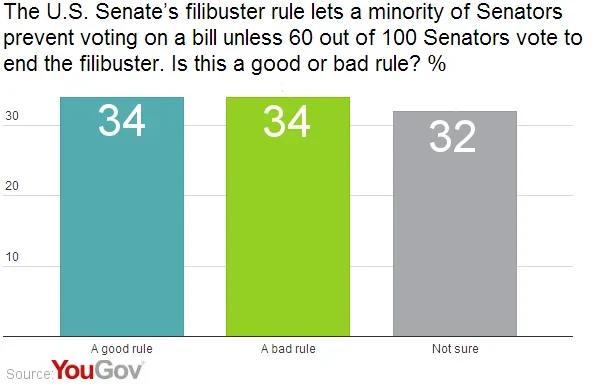
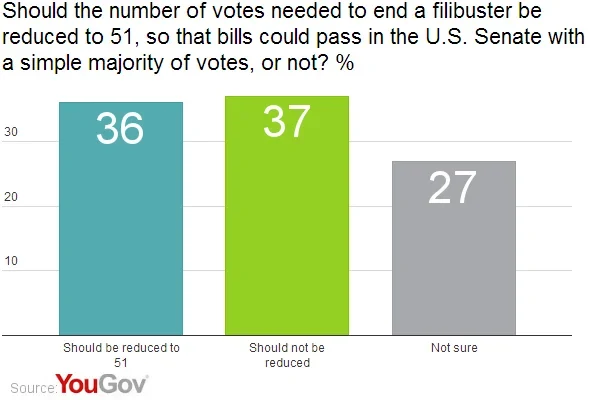
57% of Democrats want to reduce the number of votes required to defeat a filibuster on legislation to 51; 59% of Republicans oppose that. Independents also oppose such a move.
But independents divide evenly when asked whether the filibuster rule, requiring 60 votes to end debate on legislation, is a good idea or a bad idea in general, with 37% calling it a bad idea, and 38% thinking it’s a good one. In this poll, Democrats describe that rule as a bad one 40% to 26%, very much like the response they gave last June, when Democrats also were frustrated by the GOP’s use of the filibuster to keep Presidential nominations from being confirmed. Republicans like the rule, which they have used successfully to black Democratic proposals and – up until now – Presidential nominations.
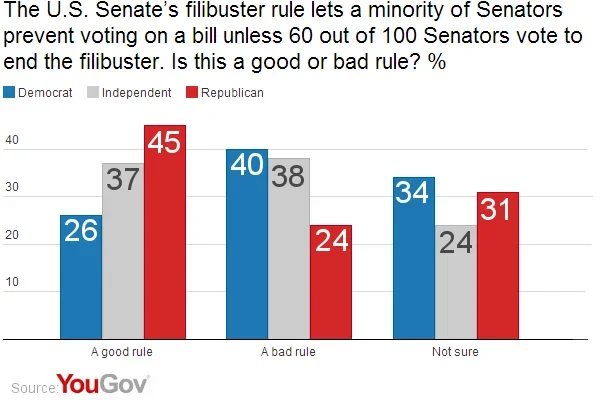
There has never been a partisan division (among the public at least) on exactly how a filibuster should work. By ten to one, Americans believe a filibuster means there is real debate on the Senate floor, and not just declare a filibuster without being physically present. That may explain the credit given to politicians – at least for their physical endurance -- when they stage marathon speeches against legislation. And of course, the one-person filibuster was the centerpiece of the Jimmy Stewart movie, “Mr. Smith Goes to Washington.”
Republican Senators Rand Paul and Ted Cruz were praised by their supporters for their physical endurance in staging one-person filibusters this year – Paul against the nomination of CIA Director John Brennan and in opposition to drone strikes on American citizens in the U.S., and Ted Cruz’s 21-hour speech against Obamacare. On the other side of the aisle, Texas Democratic State Senator Wendy Davis successfully filibustered an anti-abortion bill in order to keep it from being voted on. Although the bill later passed, she was praised by supporters and is now running for Texas Governor.
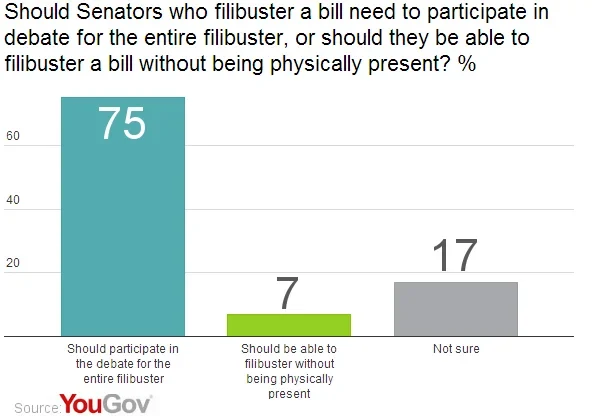
The latest Senate vote to end filibusters for nominations for all offices except Supreme Court Justices, however, gets more opposition than support. Democrats do support the move by their party’s Senate leadership, but both Republicans and independents disapprove.
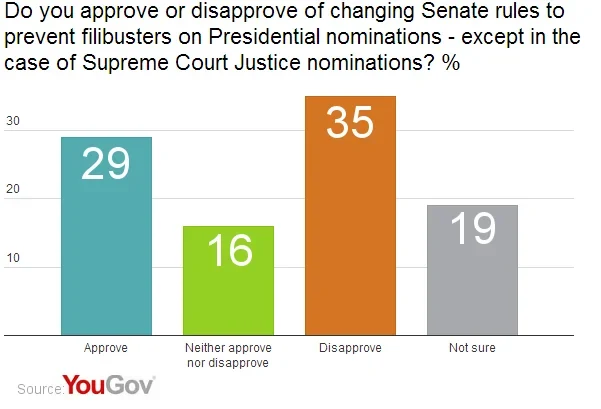
Independents disapprove of this change by a nearly two to one margin. Democrats are in favor 49% to 11%.
Many Americans aren’t sure about the filibuster. The percentages who said they had no opinion on these questions ranged from a low of 17% (on whether Senators should actually debate in person) to a high of 32% (on the general question of whether the filibuster rule was good or bad).
What Americans are sure about is how they feel about Congress in general. They don’t like it, and haven’t liked it for a while. But Congress’s approval rating in this week’s Economist/YouGov Poll matches its all-time low. Just 6% approve of the way Congress is handling its job. 72% disapprove.
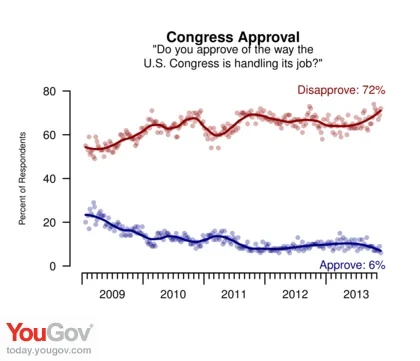
Only 10% of Democrats, 7% of Republicans, and 3% of independents approve of Congress.
Opinions of Senate Majority Leader Harry Reid don’t seem to be affected by the filibuster vote. Unfavorable opinions of him continue to outnumber favorable ones, but he scores modestly better than his GOP counterpart, Minority Leader Mitch McConnell. And Congressional Democrats fare better than Congressional Republicans.
